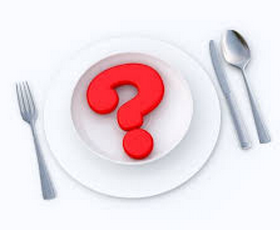Knowing how much drinking you are allowed to do is important with bariatric eating. It is essential to follow bariatric nutrition in order to avoid serious health risks. Bariatric surgery can dramatically change your life, but you need to carefully follow your new dietary regime in order to see best results and avoid serious health complications. Before you consider bariatric surgery you want to consider all the risks involved. If you have already had the procedure and want help maintaining a healthy lifestyle you need to know what to do. This article can help you understand the health risks associated with drinking during meals after bariatric surgery.
How to Eat After Bariatric Surgery- Bariatric Eating Guidelines
Bariatric surgery and the resulting nutrition and diet that you follow are a good way to help you stop over eating, but it can also come with home health problems if you don’t follow the proper bariatric surgery eating guidelines. Bariatric surgery will reduce the size of your stomach and therefore, reduce the amount of food that can be contained in your stomach. If is important to eat slowly and carefully chew your food after bariatric surgery.
Typically, not following bariatric eating guidelines will lead to nausea and vomiting. These symptoms are the same that you would feel if you ate too fast or ate too much food. However, there are other health issues that can occur after bariatric surgery that are easy to avoid if you follow proper eating habits. Let us look at some of these issues.
Some nutritional problems that occur after bariatric surgery include the following:
· Difficulty digesting food – especially red meats, bread products and fruit and vegetable skins.
· Intolerance to certain foods – especially in the few days after the operation.
· Malnutrition as a result of vitamin and mineral deficiencies.
· Changes in bowel habits.
· Dehydration as a result of inadequate drinking.
· Some symptoms to look for after bariatric surgery include the following:
· Dry mouth
· Headache
· Fatigue
· Strong smelling and/or dark urine
· Lactose intolerance
· Gas
· Diarrhea
· Bloating
· Cramping
Tips on How Much and When to Drink and Eat After Bariatric Surgery
Following bariatric surgery you will need to abide by some simple bariatric eating guidelines and take daily dietary supplements and a regimen of multi-vitamins in order to avoid malnutrition and get the missing nutrients from you new reduced diet. When you eat less, you will also be consuming less fiber so it is important to drink as much water as possible, exercise regularly and eat natural fiber sources such as oatmeal or applesauce.
Since bariatric surgery is reducing the size of your stomach it is important that you don’t drink too much fluids with you meal because this will over extend your stomach. This will increase your feelings of nausea and increase your risk of vomiting. Also, drinking with your meals causes the food to travel faster through your stomach, potentially making you hungry sooner. Some foods can also be expanded as a result of mixing with water. Therefore, it is important to drink fluids often, but before and after meals.
Bariatric surgery is one of the best procedures to help obese patients lose weight. If you follow the tips above you will be able to reduce your chance of complications that can make the procedure uncomfortable.





